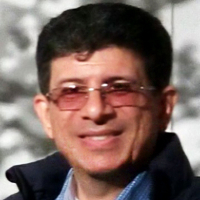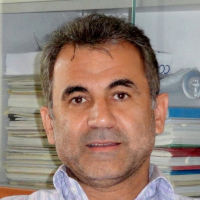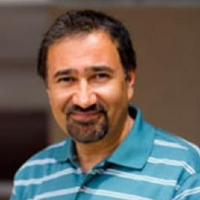Extending and developing the global practice of Water-Energy-Food Nexus in saline environments, salt-affected soil and water resources as well as salt-affected ecosystems, through the implementation of Haloculture and Haloculture Engineering (Haloengineering). Haloculture can be defined as sustainable production of different agricultural and industrial products in saline environments. Agricultural products include diverse outputs including plants (crop, horticultural, forestry, range, ornamental and medicinal), animals (small and large livestock, poultry, honey bees, etc.) and aquaculture (fish, shrimp, seaweed, algae, artemia, halophiles, etc.). Industrial products refer to the processed forms of the agricultural products, as well as the production of useful commodities such as water, salt and energy. Haloengineering is application of all related fields of engineering technologies and sciences to facilitate the implementation of Haloculture.
We Bring together innovative academics and industrial experts in the fields of engineering to a common forum regarding production of water, energy and food from saline resources for the secure and sustainable future of mankind. This shall be achieved by Haloengineers, who use the principles of Haloculture and the tools of engineering to create useful, tangible and economically viable products particularly for areas affected by salinity and shortage of water.
- Agricultural Science and Engineering (Soil, Plant, Water, Animal husbandry and Aquaculture sciences)
- Environmental Science and Engineering
- Industrial Engineering
- Civil Engineering and sustainable architecture (design of energy efficient buildings, greenhouses and other structures)
- Materials Science and Engineering
- Mining and Chemical Engineering
- Nanotechnology and Biotechnology
- Mechanical Engineering
- Electrical Engineering
- Oceanic Science and Engineering
- Energy Systems Engineering
- Water Desalination Engineering
- Establishment of Haloengineering Research Center (HRC) at KNTU
- International collaborative projects
- Conferences, workshops and talks
Steering Committee Members

AHI
Dr. Farhad Yazdandoost
Department of Civil Engineering, K. N. Toosi University of Technology, Tehran, Iran
- Sustainable development
- Resilience risk management
- Urban drainage management
- Integrated water resources management
Dr. Hossein Siadati
Department of Materials Science and Engineering, K. N. Toosi University of Technology, Tehran, Iran
- Catalysis
- Nano Catalysts
- Electronic Materials
Dr. Farhad Khorsandi
Department of Soil Science, Islamic Azad University, Darab, Iran
- Agronomy
- Irrigation and Water Management
- Soil Quality
- Haloculture, Saline Waters, Saline Lands
Dr. Mostafa Setak
Department of Industrial Engineering, K. N. Toosi University of Technology, Tehran, Iran
- Routing Problem
- Inventory Control
- Supply Chain Management
- Strategic Management
Dr. S. Hossein Sadati
Department of Mechanical Engineering, K. N. Toosi University of Technology Tehran, Iran
- Applicable design
- Neural networks
Dr. Saeed Rayati
Department of Chemistry, K. N. Toosi University of Technology, Tehran, Iran
- Heterogeneous Catalysis
- Coordination Chemistry
- Catalyst
- Synthesis
Dr. Jalal Rastegary
College of Engineering, Institute for Energy and the Environment New Mexico State University, Las Cruces, USA
- Water reuse
- Concentrate management
- Algae biofuel research
- Use of saline water and saline soil to produce salt tolerant species
- Developing Biofuels from non-edible renewable energy crops like Neem and Pongamia







